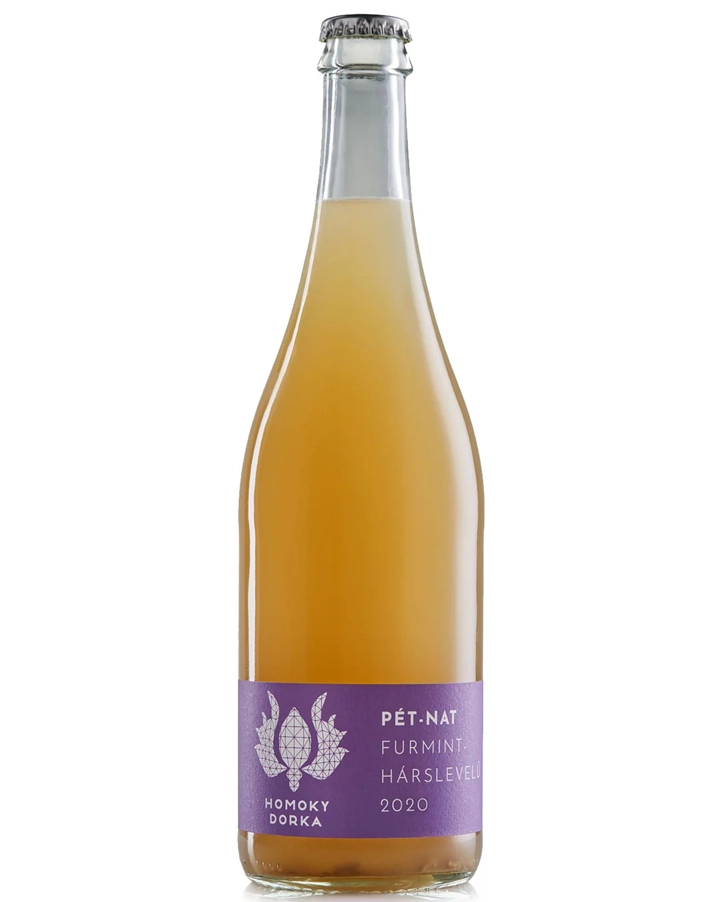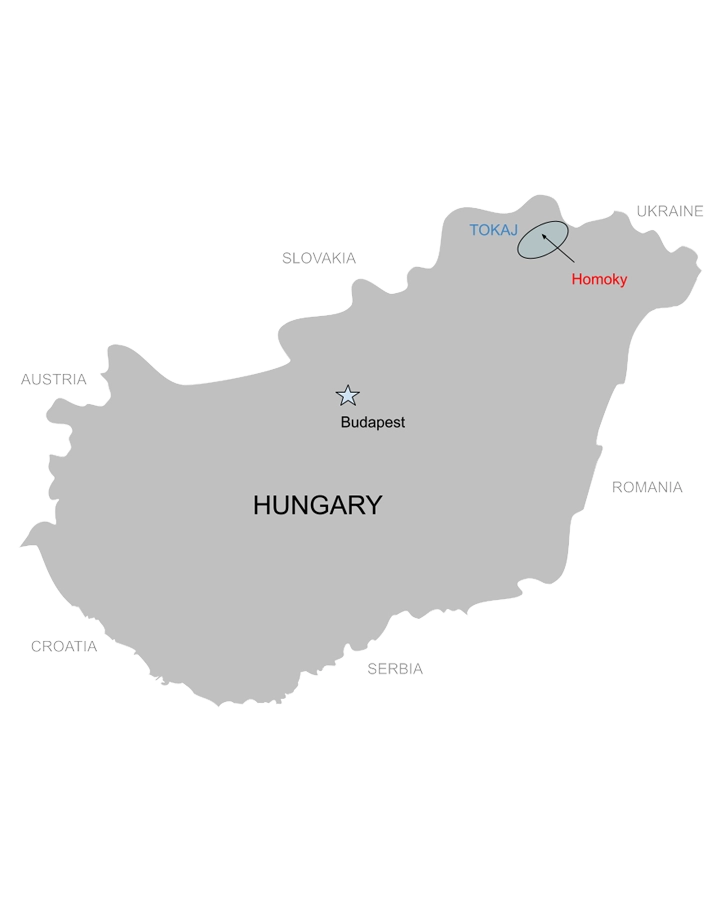Homoky Dorka 'Pét-Nat' 2022 Sparkling White Blend Tokaj, Hungary
Homoky Dorka 'Pét-Nat' 2022 Sparkling White Blend Tokaj, Hungary
750ml bottle
12.5% abv
A pét-nat with boundless energy. Bursting with pear and peach puree on the nose and lovely tart quince on the palate. Saline & wild!
GRAPE COMPOSITION: 60% Furmint and 40% Hárslevelű
CLIMATE: Cool Continental
SOILS: Rhyolite, clay, and loess
MACERATION & AGING: Spontaneously fermented in stainless steel and then bottled with 14 g/l residual sugar.
RESIDUAL SUGAR: 4.5 g/l
ACIDITY: 6.12 g/l
This is 60% Furmint and 40% Hárslevelű from the Dongó, Hetény, and Nyergesek vineyards. Spontaneously fermented in stainless steel and then bottled with 12 g/l residual sugar. Bottled without disgorgement, there’s a lot happening in this bottle. Definitely give a proper chill and expect a little extra excitement at opening. Nothing in terms of major loss, but have a glass ready as a little will froth over the top. Tokaj isn’t lost in the pét-nat-ness, but it’s very similar to barrel tasting in Tokaj if you then added the alcohol and acidity of a finished wine. This is only her second commercial release and among the very first pét-nats from Tokaj to reach the US market.
Dorka represents yet another dynamic generation coming of age in Tokaj. She’s among the first to grow up in an established community of female mentors as well. Just within our portfolio, people like Judit Bodó (Bott Pince), Sarolta Bárdos (Tokaj Nobilis) and Stéphanie Berecz (Kikelet) have all been hugely influential just to name a few. Dorka is pushing the envelope in terms of low intervention winemaking, organic farming, extended skin macerations, mixing grapes and fruit, and helping pioneer new sparkling wines. Dorka is a fourth generation winemaker in the village of Tállya in the southwest corner of Tokaj. At first, she never considered wine a career, her first degrees being in film and philosophy. Her parents never pressured her to enter the wine business. However, the years away from Tokaj gave her the distance and change in perspective she needed. She started to experiment in the vineyard and cellar bit by bit. In 2016 she made the leap and spent half a year studying viticulture in Lyon where she was also exposed to natural wines followed by a harvest in New Zealand. She feels beyond lucky to not only return home to an iconic wine region, but also to her family’s experience, traditions, and support. At this point, her contribution to the family is her enthusiasm and relentless energy and the perspective of having left to see how truly special this slice of Hungary is. Starting with just 1 hectare, her parent’s rules were simple: You must harvest it. You must make it. You must sell it.
Vineyards:
Dorka has since increased to 3 hectares spread across the single vineyards (dűlő) of Hetény, Dongó, Görbe, Bártfai, Sas alja, and Nyergesek. While 300+ years ago Tállya was one of the largest villages in Tokaj and arguably boasted the majority of 1st class sites, today it’s not nearly as developed as other villages. Nevertheless, it’s becoming an incubator for organic farming. Land is available for sale and a community of like minded growers is taking root and helping one another. Tállya is also generally windy and further from the Bodrog River than many other villages, but humidity (namely black rot) can still be an issue. While botrytis at the right time is welcomed, there’s a constant dance between having a lighter canopy to promote airflow and too little risking sunburn. This is especially the case when converting to organics. Like the rest of Tokaj, the soils here are heavily volcanic. The Dongó (Bumble Bee) vineyard is Dorka’s favorite running spot. The bedrock is rhyolite with quite a bit of detritus. The Hetény Dűlő is also mostly Rhyolite but with much more clay and a little bit of loess as well. Furmint and Hárslevelű dominate the plantings and the clay and better water retention yield really bright acidity, an ideal site for her sparkling wines. The Nyergesek Dűlő (saddle vineyard) produces bright fruit with often hard acidity. The acidity is so sharp from the andesite heavy soils that it needs to be tamed by either maceration, sugar and or age. First mentioned in 1469, this is mixture of Furmint and Hárslevelű and is ideal for her sparkling wines.
Winemaking:
All grapes are hand harvested, destemmed and then pressed without crushing. Most lots are spontaneously fermented in stainless steel, then aged further on the lees in stainless along with shorter élevage in barrel due to most of her barrels being so young. All wines are bottled without filtering or fining and the only addition is SO2.
Share



